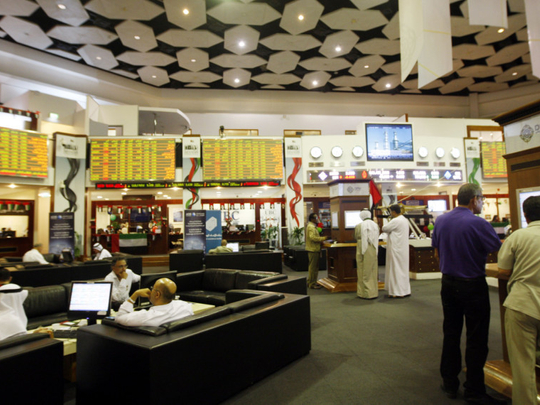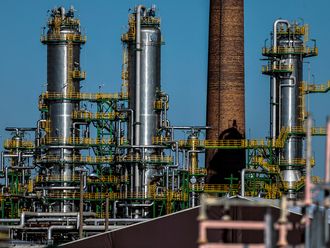
Dubai: The Dubai index fell back from the keenly watched 4,000 level on Monday led by Arabtec and Emaar, even as crude neared $60 a barrel mark again.
The Dubai Financial Market General Index fell from a high of 4,008.38 to close 1.22 per cent lower at 3,938.64. The index had gained more than 2.5 per cent on Sunday.
“I see a new low for Dubai index this week, and Dubai index may test support level of 3,780,” Osama Al Ashri said, member of British organisation, Society of Technical Analysts.
“The index won’t be in a position to close above 4,090, a main resistance level for the index go higher,” Al Ashri said.
The index was up for three straight session until Sunday. In stock specific movements, Arabtec ended 2.45 per cent lower at Dh3.19, while Emaar Properties ended at Dh7.81, down 1.76 per cent.
“Arabtec is likely to test support level of Dh2.79. Emaar Properties may consolidate in the range of Dh7.20-8.10,” Al Ashri said.
On the broad index, out of a total of 34 stocks, about 26 shares fell, and shares of 6 companies rose.
The Abu Dhabi Securities Exchange General Index ended 1.15 per cent lower at 4,543.14, falling from a high of 4,605.72.
Out of 34 stocks on the ADX, shares of 20 companies declined and other 9 advanced.
Crude oil advanced for the first time in three days amid speculation that an escalating conflict in Libya may pare a global surplus that’s driven crude into a bear market.
Risky Saudi:
Saudi’s Tadawul All Share TASI index ended almost flat at 8,855.35 in trade, after gaining more than 1 per cent in the previous session.
“Saudi index is still considered to be risky. There are no strong indicators of an upward move,” Al Ashri said.
Saudi Arabia is removing barriers to its $509 billion stock market as it pursues a $130 billion spending plan to boost non-energy industries. The Capital Market Authority informed investors of the April time line, two people briefed on the plan told Bloomberg.
Last week, Saudi Arabia maintained high level of spending despite budgeting a deficit for the first time since 2009.
Saudi projected this budget deficit as the kingdom budgeted for record spending of 860 billion riyals on revenues of 715 billion riyals. Normally oil accounts for 90 per cent of the kingdom’s revenues.
Saudi Basic Industries Corporation or Sabic ended Monday’s trade at 89.39 riyals. Sabic would continue to plunge further and see support at 78 riyals, Al Ashri said.












